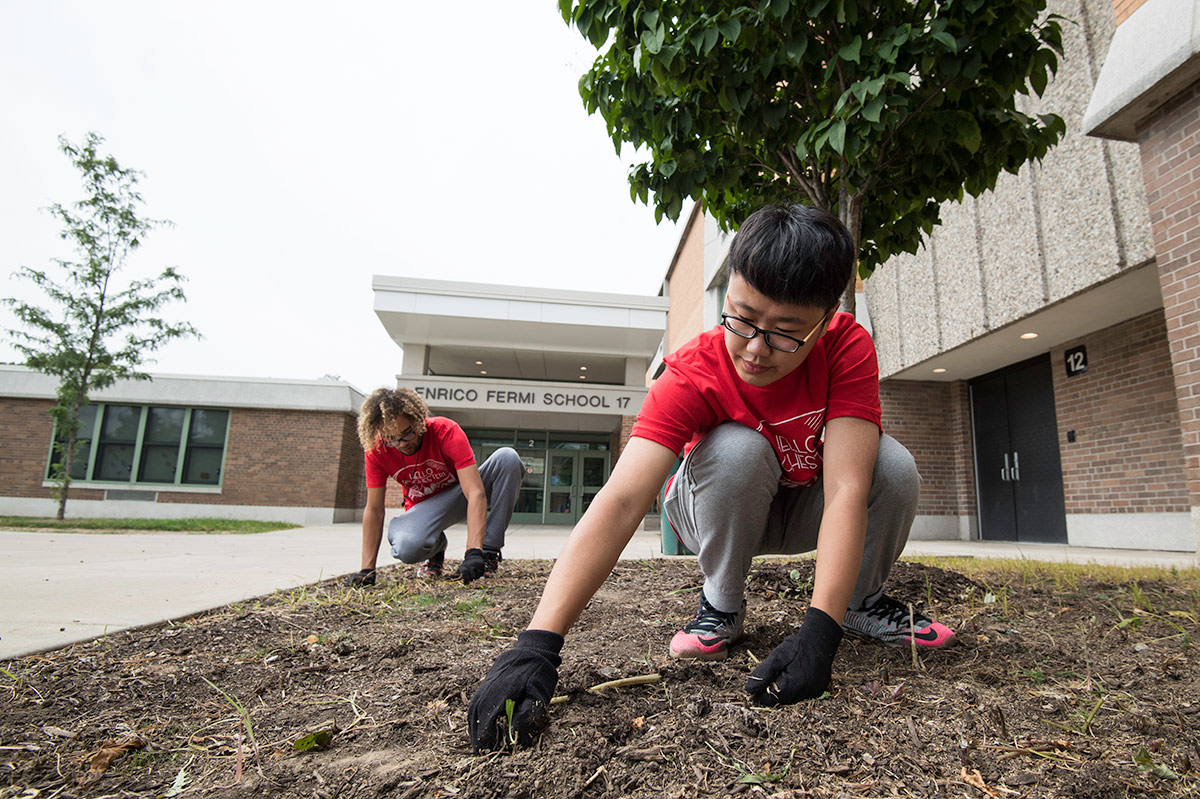On Monday, August 28, the Rochester Center for Community Leadership (RCCL) held its annual Wilson Day event as a part of Orientation. Established by Theresa Guenther (Class of ’90) in 1988, Wilson Day is a day of community service “[to introduce] incoming students to their new city and helping them to form connections with local community members.” This marks the twelfth year that RCCL had the task of planning the event.
Service projects assigned to students this year varied from chalkboard washing to landscaping, but many of them involved environmental work. Students completed projects related to community gardening and ecological landscaping for the Rapid’s Cemetery Food Forest, Phillis Wheatley Library’s Public Food Forest, Neighborhood of the Arts, Ganondagan State Historic Site, Green Visions at Greentopia, and Taproot Collective. Environmental service projects are not new to Wilson Day. “Each Wilson Day I’ve participated in has had a connection to the environment,” said Madison Carter (Class of ’18). “My freshman year, I went to a garden in the city that was once an abandoned lot. We raked, weeded, and planted carrots and other vegetables.” Madison attended Wilson Day 2016 with members of her upperclassmen residence hall to help freshmen assigned to work with The Swaraj Project. “I’ve been thankful to start off the school year with nature as a central theme.”
On the surface, the environmental service projects assigned on Wilson Day may look like the only ones related to sustainability work; however, positive community engagement of any kind can lead to a more sustainable community in many ways. When a person works to help their community, they are improving lives. For example, when the Flower City Pickers take leftover food from the Public Market and donate it to homeless shelters in Rochester, they are helping the community and the environment; the homeless shelter has more food to give to those in need and the donated food is no longer at risk of contributing to the one-third of food waste that is thrown away annually. “Sustainability should be a regenerative effort to create a more mutually beneficial relationship between our community – whether local or global – and our surrounding ecology,” said EcoReps Coordinator Maxwell Sheldon. “By strengthening the effort towards sustainability, we will also strengthen our communities by learning together to give to the Earth what she gives to us.”
Community service is becoming a common theme for sustainability groups on campus. The EcoReps program will now have a committee specifically dedicated to community engagement. Additionally, GreenSpace will be incorporating community service into the organization’s mission statement. As the connection between service and sustainability becomes clearer, students like Maxwell Sheldon hope that the University will be able to improve the campus and city communities. “Introducing sustainability to the greater Rochester community provides a space for people of all ages to come together in an empowering effort to enrich their own lives and the lives of those around them.”
Written by Michaela Burrell, Class of 2020

